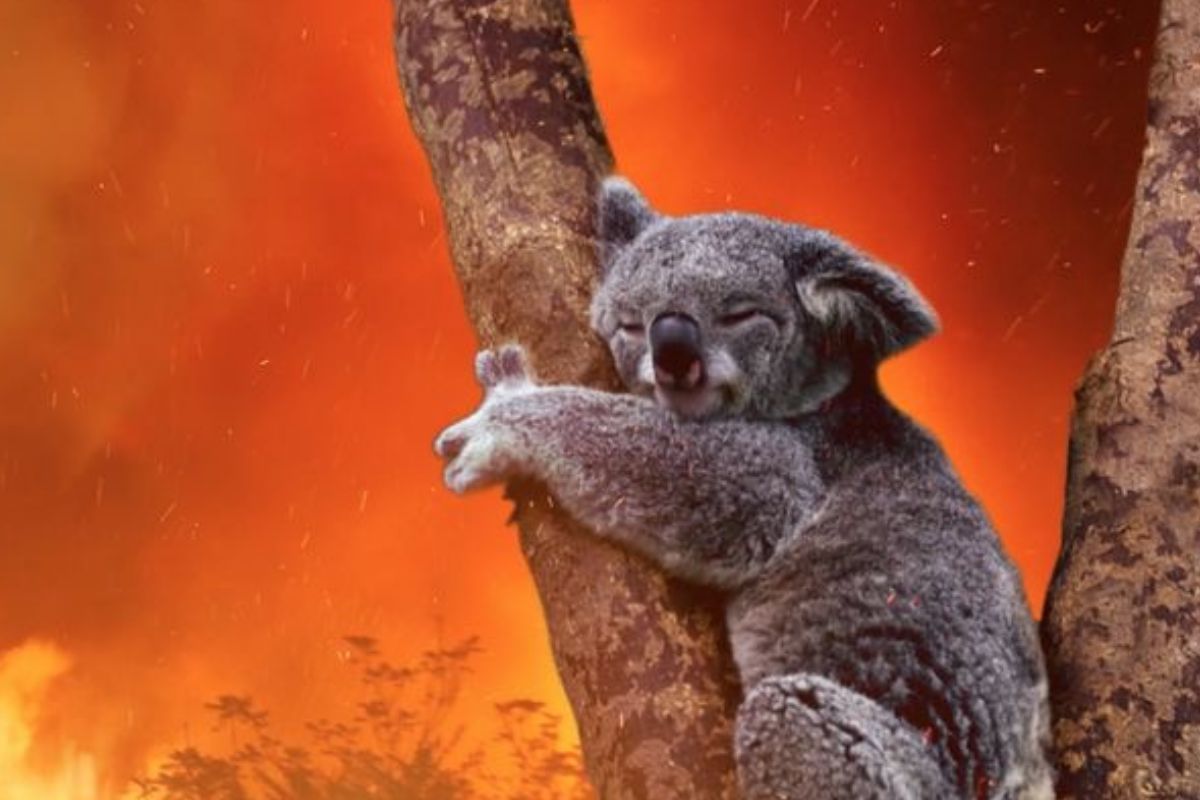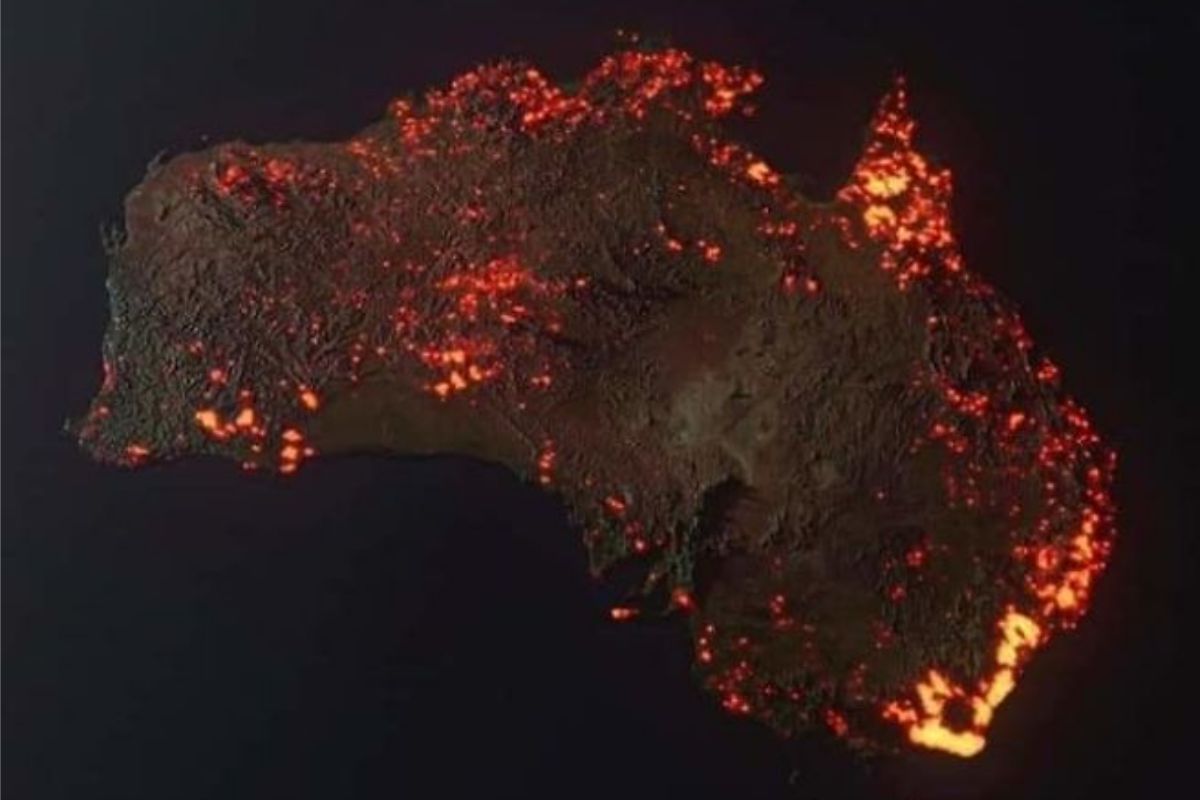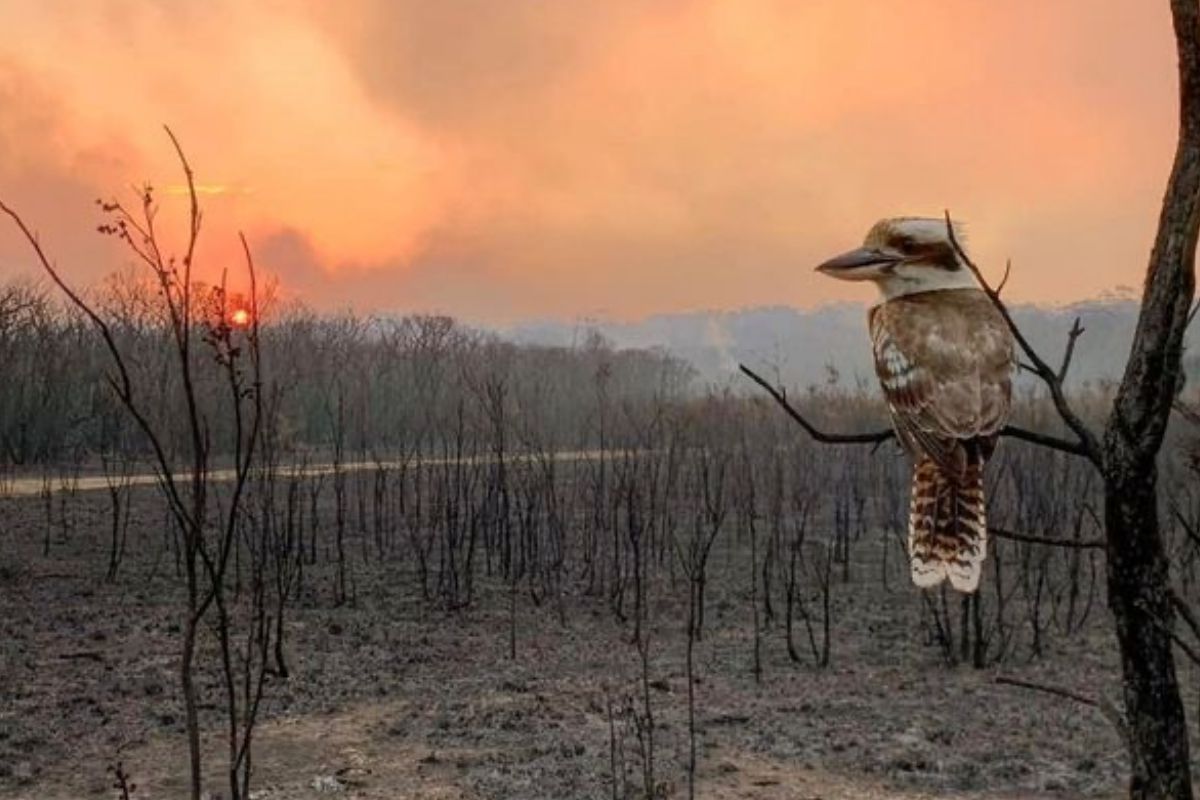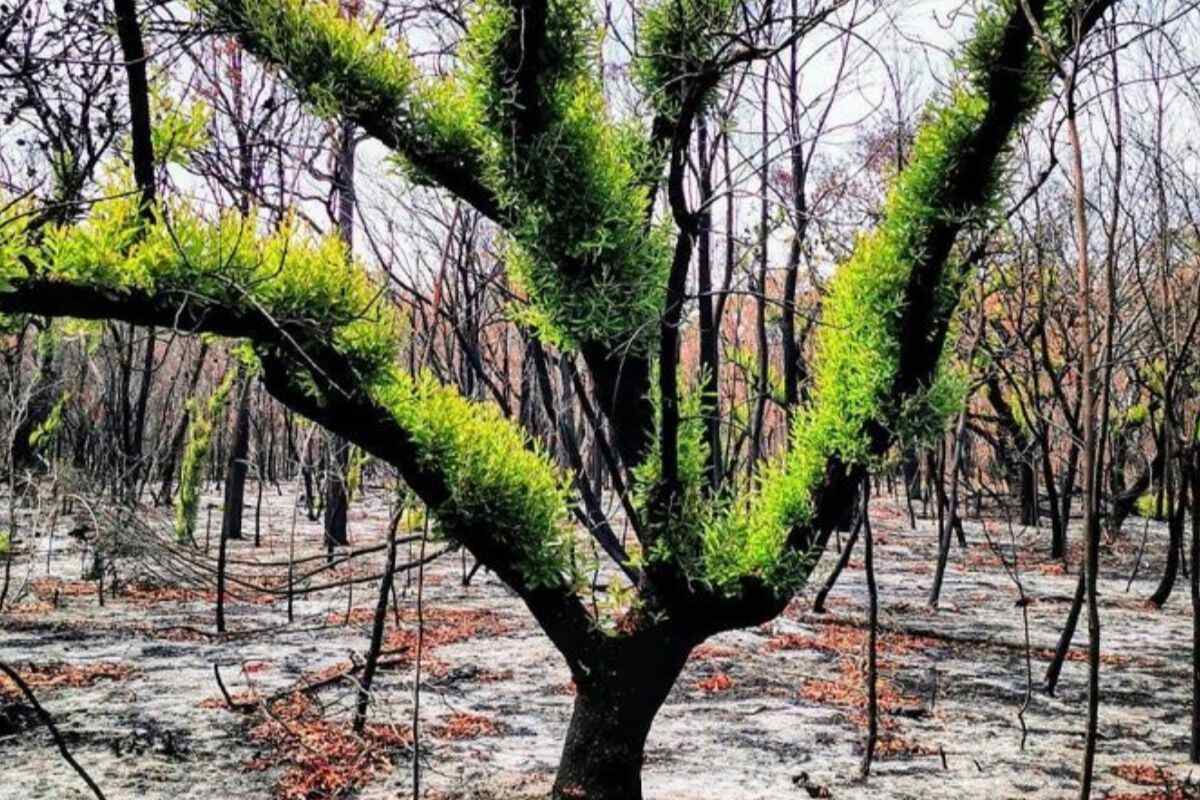The Troubling Findings Uncovered in the Aftermath of the 2019 Australian Bushfires
The Black Summer fires in Australia were a destructive series of wildfires that occurred between December 2019 and 2020.
The fires were caused by many factors, some of which were dry vegetation, extremely high temperatures, and drought. They caused widespread destruction, including loss of properties and lives, as well as environmental damage.
The Environmental Impact
The wildfires covered about 46 million acres of land. It harmed Australia’s unique ecosystem, and the population of many animals and their habitats decreased significantly.

Source: LifeMinute.tv/ Pinterest
According to Yahoo News, there is a possibility that the fire caused numerous extinctions. One of the animals that took the biggest hit was the insects. Trillions of insects were destroyed, and many other invertebrates were wiped out.
Wildlife in Peril
After the fires eventually went out, experts noticed nearly three billion animals were destroyed in the blaze. Later on, researchers believed the number of destroyed insects in a particular region to be 60 billion. However, when the burned area was analyzed, the number of insect casualties soared.

Source: BoredPanda/ Pinterest
According to a professor at La Trobe University, Professor Heloise Gibb, the numbers went from billions to trillions. Not accounting for the micro-invertebrates, Professor Heloise thinks about six trillion invertebrates were destroyed.
An Altered Food Chain
If Professor Heloise included the tiny insects, which make up 95% of all invertebrates found in leaf litter, the numbers would have amounted to 120 trillion in the areas that were burned.

Source: TheGlobeandTheMail.com/ Pinterest
All insects play a vital role in our ecosystem, no matter how small. They are part of the food chain as they are always eaten by small animals like birds and fish, who are preyed upon by larger predators. A reduction in the population of insects can affect other animals on the food chain.
A Quiet Forest
Some of these insects also help boost agricultural outputs. By feeding on pests that threaten the crops, they help farmers save lots of money. Professor Heloise said when she went into the forest after the fires were put out in 2020, the forest had started regrowing, but there were no sounds from the wildlife.

Source: BoredPanda/ Pinterest
“Lots of birds feed on insects, so if they’re not there, there won’t be birds, and the forest will be quiet,” the professor said. “Until invertebrates are there to be eaten, those missing species won’t return.”
